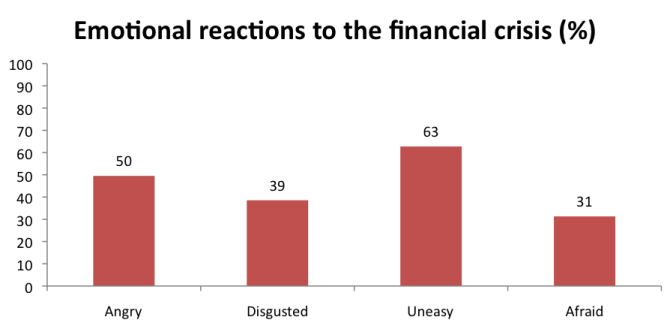 Although often ridiculed in the 1980s, the left’s social policies were on the winning side when it came to gender, sexuality, and environmentalism, writes James Curran. However, the same cannot be said for their politics of race, and certainly not for their economic policies.
Although often ridiculed in the 1980s, the left’s social policies were on the winning side when it came to gender, sexuality, and environmentalism, writes James Curran. However, the same cannot be said for their politics of race, and certainly not for their economic policies.
During the 1980s, the urban left was rendered toxic. It was reviled by the press, demonised by Conservative government minsters, and denounced by Labour’s leadership. The phrase ‘loony left’ entered the English language to denote a deluded socialism that warranted only ridicule. Nothing more needed to be said, no additional arguments needed to be mustered: the ‘loony left’ stood for all that was absurd about an unhinged, zealous, politically correct strand of social radicalism.
However, since the 1980s, the once derided policies of the urban left have gained increased support, and in some instances become part of the new consensus. This is especially true in relation to the urban left’s stand on homosexuality. It championed Gay Liberation and argued that gay relationships should be normalised – a deeply unpopular position during the AIDS moral panic. But a sea change of public attitudes took place in the subsequent period. Whereas 74% said that same-sex relationships were always or mostly wrong in 1987, only 16% took this view in 2016. In 1983, only 41% thought it was right for a homosexual to teach in a school, compared with 83% in 2012. Similarly, a bare majority (53%) in 1983 thought that it was acceptable for a homosexual ‘to hold a responsible position in public life’ whereas 90% was comfortable with this in 2012. Against this background of changing attitudes, gay marriage was legalised in 2013 – symbolically affirming the normality of gay relationships.
Something similar happened in the case of gender relations. In the 1980s, the urban left were mocked for championing feminism, and ridiculed for seeking to ‘subvert’ traditional gender norms. But what seemed to some ridiculous in the 1980s appeared less so some 25 years later. Whereas in 1987 48% of the population agreed that ‘a man’s job is to earn money’ and ‘the woman’s job is to look after the home and family’, only 13% took this view in 2012. This reflected a generational shift. Younger people were much more inclined than the older generation to say that it was acceptable for women with young children to go out to work.
Admittedly, the traditional stigma attached to feminism lingered on. In 2015, only 7% of British adults (and 9% of women) defined themselves as feminists, principally because feminism was associated with being extreme, polarising and ‘political’. But the movement became stronger from the 1980s onwards partly because it gained increased support from the right, and also among men. By 2015, large majorities in Britain agreed that gender equality was desirable; that it had not been achieved; and that more needed to be done to rectify this. Indeed, 67% said that they were sympathetic to feminism. Feminism-lite became mainstream.
Although the urban left’s environmentalism was not reviled in the 1980s, it was viewed by many as a ‘fringe’ interest. This ceased to be the case, with the dawning realisation that climate change was a reality. By 2014, a mere 6% disputed that the planet was warming; and a further 6% disagreed that human activity was contributing to climate change. Against this background, only a handful of MPs opposed in 2008 the Labour government’s Climate Change Act, setting out a detailed plan for reducing carbon admissions. Britain’s support for the Paris Agreement on Climate Change in 2016, under a Conservative government, had all-party backing.
The 1980s London left (in which the Labour triumvirate of Corbyn, McDonnell, and Abbott were all prominent ) were also outriders of change in relation to race. Their stand in favour of positive action to redress racial inequality was attacked as a form of ‘inverted racism’. However, their stand became mainstream by the 2000s. Organisations like the BBC, Football Association, and Metropolitan Police deliberately sought to recruit and promote members of racial minorities, urged on by both Labour and Conservative governments.
However, this shift was not underwritten to the same degree by a change of public attitudes. On the one hand, racism in much of Britain declined. Whereas over 50% expressed hostility to inter-racial marriage in their family in the late 1980s, this dropped to 35% in 1996 and to 20% in 2013. But if one part of society became less racist, another part dug in its heels. The percentage of people saying that they were prejudiced against other races fell from 36% to 26% between 1983 and 2017. But the decline was not linear, and those saying that they were racially prejudiced never dropped below a quarter of the population during this period. Overt racism was anchored by tenacious beliefs about racial inferiority; fuelled by the rise of Islamophobia (in 2013, twice as many people said that they would mind a family member marrying a Muslim as said the same of a black person); and strengthened by growing opposition to the increase of immigration into the United Kingdom.
So, if the urban left of the 1980s were on the winning side in relation to gender, sexuality and environmentalism, they encountered strong headwinds in the politics of race. Furthermore they got absolutely nowhere when they argued that the state should play an activist role in the creation of good jobs to counteract de-industrialisation. If the left won the battle more or less on social issues, it was comprehensively defeated in the area of the economy. Neoliberalism reigned supreme under both New Labour and Conservative governments. This created the conditions in which a resurgent social conservatism in ‘Brexitannia’ took wing. One of the causes of the EU Referendum result was economic resentment in the declining regions of the country, unalleviated by government action. The left’s failure to prevail in one area (economic policy) – until the emergence of Corbyn – may yet undo its success in another (social policy). Social democracy needs to make a firm break with neo-liberalism if its social liberalism is to flourish in the future.
___________
Note: The above draws on Chapter 12 of James Curran, Ivor Gaber, and Julian Petley, Culture Wars: the Media and the British Left (2nd edition, Routledge, 2018).
 James Curran is Professor of Communications, Goldsmiths, University of London.
James Curran is Professor of Communications, Goldsmiths, University of London.
All articles posted on this blog give the views of the author(s), and not the position of LSE British Politics and Policy, nor of the London School of Economics and Political Science. Featured image credit: Pixabay (Public Domain).








Did the left lose the argument on race?
In 1980 there were just a handful of workplace based equal opportunity policies, which left labour councils championed in the face of Conservative ridicule.
Within ten years three quarters of the workforce were covered by such policies.
https://www.amazon.co.uk/Equal-Opportunities-Revolution-James-Heartfield/dp/191092492X?SubscriptionId=AKIAILSHYYTFIVPWUY6Q&tag=duckduckgo-iphone-uk-21&linkCode=xm2&camp=2025&creative=165953&creativeASIN=191092492X